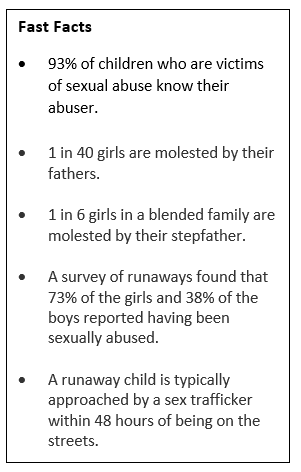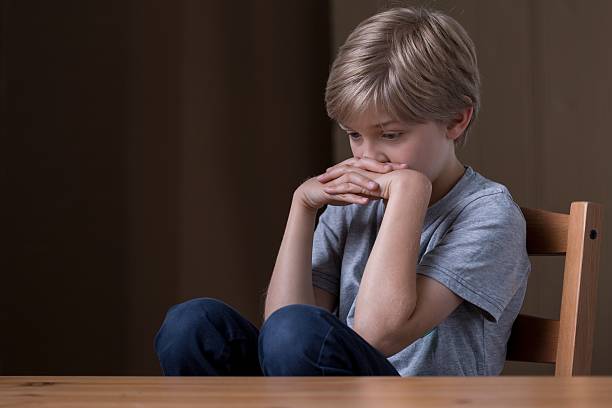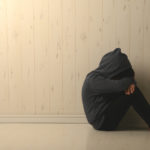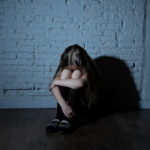

Despite the overwhelming prevalence of childhood sexual abuse, very few parenting books and resources include how to prepare for, respond to, or what to do if your child is sexually assaulted. As a result of our collective denial about sexual abuse, and the accompanying shame and inevitable silence, we miss an opportunity to educate adults and caregivers on how to appropriately assist their children when the “unthinkable” happens.
Characteristics of a Predator
We tend to make false assumptions about the qualities and appearance of a sexual perpetrator. Sexual abusers look like us, they are charming and likable, they mostly likely have adult sexual partners, and they spend just as much time grooming the parents as they do the children.
The most common occurrence of childhood sexual abuse is with a close family friend, family member, or someone who is known and trusted. So instead of asking ourselves what we would do if our child was abducted or attacked by a stranger, we need to ask how we would respond to our child if they tell us someone we know, trust, like, or love is sexually abusing them. More importantly, we need to empower and educate our children to identify potential abuse, defend against it, and feel safe reporting it to trusted adults. READ: Defending Against Predators of Children
Research consistently demonstrates that most children do not tell anyone when they’re sexually abused.
Very rarely do kids tell you things they think you do not want to hear without revealing hints first. Though it is possible that the first thing your child would say is “Uncle Joe touched my private parts,” it is more likely that they’ll test the waters with a more passive statement like, “I don’t like when Uncle Joe comes over.” It is critical you think about your responses to your children during these seemingly benign moments.
Listen to what the child presents to you, assure them that is safe to tell you, but let them guide the speed and extent of the information they share. It is also necessary to not make promises to keep their “secret”.
Other signs of a potential disclosure:
- Child doesn’t want to hug a family member who visits
- Child suggests that they “don’t like” someone in your inner circle
- Child feigns an illness, like a stomachache, before going to see a specific person
 Quite often parents miss these subtle queues and respond with statements like, “Give Uncle Joe a hug, he loves you,” “Of course you like Uncle Joe, he is my favorite brother,” and “Stop complaining, Uncle Joe is always so nice to you.” The abused child gets a message loud and clear—I don’t believe Uncle Joe is hurting you, I don’t want to hear about him hurting you, and I won’t help you.
Quite often parents miss these subtle queues and respond with statements like, “Give Uncle Joe a hug, he loves you,” “Of course you like Uncle Joe, he is my favorite brother,” and “Stop complaining, Uncle Joe is always so nice to you.” The abused child gets a message loud and clear—I don’t believe Uncle Joe is hurting you, I don’t want to hear about him hurting you, and I won’t help you.
For those who do summon the courage, the reaction of the person they tell can be a crossroad for that child. Will their response begin the process of healing or send the child deeper into feelings of shame, guilt, and isolation?
FIVE THINGS TO SAY WHEN HANDLING A DISCLOSURE
- “I believe you.”
Child sexual abuse is the most under reported crime. False accusations of sexual abuse from children are extremely rare. Most children resist disclosing abuse, because they’re terrified nobody will believe them. Often abusers tell them this directly and indirectly. When the perpetrator is also a family member, friend, or trusted person in the family’s inner circle, you may feel blindsided and not want to believe this person could harm your child. Now is not the time to question the validity of the disclosure. Make sure they know you believe them and begin the process of coming to terms with this new reality.
- “You can talk to me.” (Listen, and don’t interrupt)
Don’t interrupt, interpret, or request clarification. Details will come, but in the moment of a disclosure, it’s critical that your child be free to speak without fear.
- “Telling me was the right thing to do.”
What they’re sharing is a crime, not a secret.
- “I’m so glad you told me. I also have to tell someone, so we can protect you.”
In the case of younger children, you will need to report the abuse to child protective services or your local prosecutor. With older children, find out if they want you to make a report on their behalf or if you can support them in making the report directly.
- “It’s not your fault.”
A child may need to hear this often, especially as they see the fallout of the crime (loved ones arrested, family members upset, friends and families’ lives disrupted).
FIVE THINGS TO DO (OR NOT DO) WHEN HANDLING A DISCLOSURE
- Don’t ask the child too many questions or relay any doubt of the child’s account.
- Contact law enforcement immediately.
Write down notes after you speak with the child so your report can be as accurate as possible. If the information does not rise to the level of criminal charges, let the police decide that.
-
- Don’t directly confront the abuser, report the crime to the authorities, and let them handle the perpetrator.
- Manage your emotions
Process raw emotions with a third party not involved with the situation and away from your child.
- Get Professional Help
There are medical, legal, and psychological supports available. Don’t try to navigate this alone; seek help from professionals who can help support the child (and you) through the process.
The Consequences of a Poor Parental Response
Many parents won’t let themselves entertain the idea that something so awful could happen to their child, so they won’t be disclosure ready. When a parent denies the abuse, turns their back on their child, and doesn’t give them the support they need, the outcomes are devastating.
- A survey of runaways found that 73% of the girls and 38% of the boys reported having been sexually abused.
- A runaway child is typically approached by a sex trafficker within 48 hours of being on the streets.
- Children who are sexually abused earlier in childhood are four times more likely than their peers to be targeted and victimized by sex traffickers. Other risk factors for commercially sexually exploited children.
 Parenting is challenging under the best of circumstances. Rising above rage, guilt, disbelief and betrayal, to stay present, open and loving towards the child can make the difference between them healing or spiraling into unhealthy coping mechanisms. There are resources and professionals to help navigate this tragedy. No one needs to do it alone.
Parenting is challenging under the best of circumstances. Rising above rage, guilt, disbelief and betrayal, to stay present, open and loving towards the child can make the difference between them healing or spiraling into unhealthy coping mechanisms. There are resources and professionals to help navigate this tragedy. No one needs to do it alone.





I want to ask an informed person about these matters some questions?